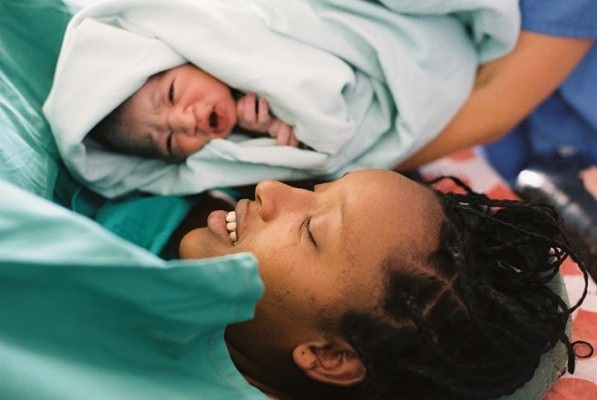March 20th
A fog has descended over Gimbi blocking the sun to a moon-bright disc in what should be an otherwise clear sky. This started yesterday and as the valley appeared evenly shrouded in this white mist I initially assumed it was part of the change in the weather that is occurring gradually as we move towards the rainy season which begins in May (the weather has become noticeably hotter so that it is a necessity to keep out of the sun during most of the day and so that unfortunately sleeping at night without a fan is now difficult- the choice being the heat of closed windows with a sound barrier or the slight cool of opening them with the downside of constant dog barks, mosque calls, cockerels who seem to think dawn is at 3am and the ubiquitous to Africa, over-amplified loud speaker music/orthodox church sermons that begins at about 6am and cicadas who like to perch on the outside of the mosquito net chirping loudly- so far I have settled for the closed window option but as the heat increases I may have to seek out ear plugs). I was a bit surprised when the midday heat had done nothing to shift the mist and enquiry established that the mist is in fact smoke that descends at this time of year for days or weeks as the farmers burn off the stubble from their coffee crops picked in January in preparation for the next planting when the rains come- as this is the major crop in this area, this creates a lot of smoke. Surprisingly there is no smoky smell and there is none of the dark residue that I associate with smoky bonfires in the UK (causing neighbours to be upset as their washing gets grubby)- I assume this is because the burning stubble is very dry and entirely natural.
Coffee is one of the home comforts that I have not had to forego in Ethiopia. Some of you will know that Ethiopia is thought to be where coffee was first discovered, near a town in the north called Kaffe (there are stories about frisky over caffeinated goats and monks noting the aroma of roasting coffee beans after they inadvertently burned coffee plants on a bonfire to add colour to the story of it's discovery). Coffee is one of Ethiopia's biggest export crops- thus pre-packed ground coffee is easily bought in the "supermerketi" and unroasted coffee beans are available in the market to be brought home and roasted before grinding. As a result although I have detoxed in relation to many things, caffeine hasn't been one of them with two big cups of coffee made in an Italian stovetop coffee makers every morning to get me going.
I think the majority of us would agree that we have many things to thank the Italians for (if I list mozzarella cheese, mushroom risotto, Brunello, beautiful shoes and handbags it also gives away some of the things I have missed in my time here) and certainly I have reason to thank the Italians for the time they spent with Ethiopia as a protectorate (having their colonial aspirations thwarted by Ethiopian strength at various stages this was the most they achieved) as their legacy is that excellent coffee ("buna" as it is locally know )is available everywhere. In Addis, old Italian "gaggia" type espresso makers abound but even in the streets of Gimbi you can pick up an excellent coffee on the street. The establishments are far from fancy and to my chagrin I have to confess that appearances are such that if I had not been taken the first time by Ethiopians I might have been concerned about the risk that water had not been boiled properly etc., I now feel ashamed of my precious western ideals as the hygiene standards are very good albeit with a washing-up bowl and a water canister rather than some fancy dishwasher.
The Gimbi style"Starbucks" is a small shack on the street side that consists of a brightly coloured tarpaulin to keep sun & rain off customers who sit on benches around a table with thermos flasks of coffee & tea. This has been made (always very recently as turn-over is high) by putting home roasted & ground coffee into a kettle of water boiled on a charcoal burner (always in evidence in the corner). The coffee is served black in small (espresso size) miniature teacups. The default position is that the bottom third of the cup will be filled with sugar but the option of no sugar is not considered unusual although it is requested less frequently than salt coffee where a teaspoon of a solution of coffee with dissolved salt is added instead of sugar (needless to say I have declined the offer of trying this type of coffee as I suspect it is something you have to grow-up drinking to appreciate). The "branch" we go to is a little place with an orange cover next to the hospital gate. We go regularly after the morning ward round and I now no longer need to ask for coffee without sugar as it arrives automatically. An espresso habit here is not the same expense that it is in the UK, as a cup cost 1burr (5p) and homemade donuts are also available for the same princely sum (Steve assures me they are very good).
Coffee is such an important part of life here that everyone aspires to own a coffee set (there are shops in Gimbi that sell only coffee sets) so that they can perform a coffee ceremony on special occasions and for guests. One of the long-standing American nurses-Scott left last week (he goes home to work in Yosemite for 6-months to earn enough money for him and his family to work here for the other 6-months of each year) and a coffee ceremony was organised to mark his departure. The ceremony involves the making of coffee including bean roasting with the pan taken around for everyone to experience the aroma of the freshly roasted coffee and thus the ceremony takes about an hour in total. As might be expected coffee is made by women (even the stalls seem to be female owned & run) and all girls learn how to make coffee from an early age and to perform the coffee ceremony.
Thankfully I have not seen or been served in Ethiopia is instant coffee and I am not at all sorry to have found a country in Africa where "Nescafe" is not considered the desired drink when coffee is requested!


No comments:
Post a Comment